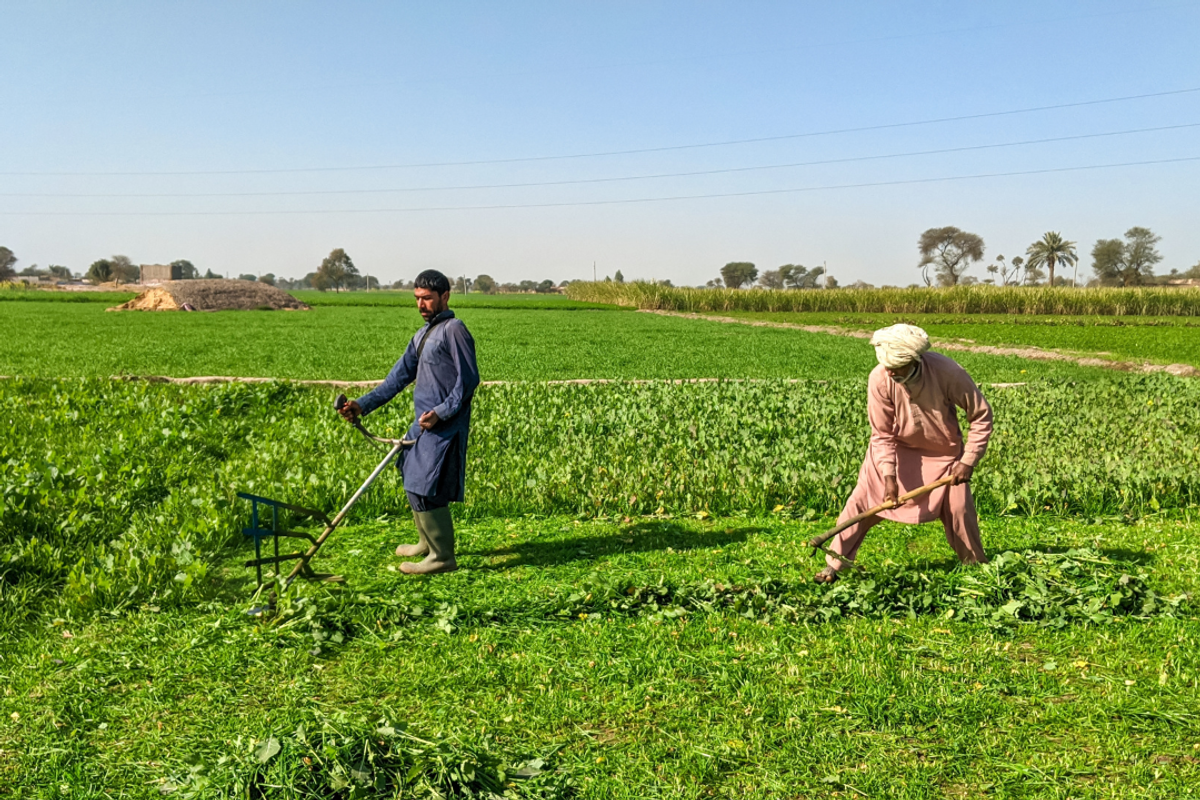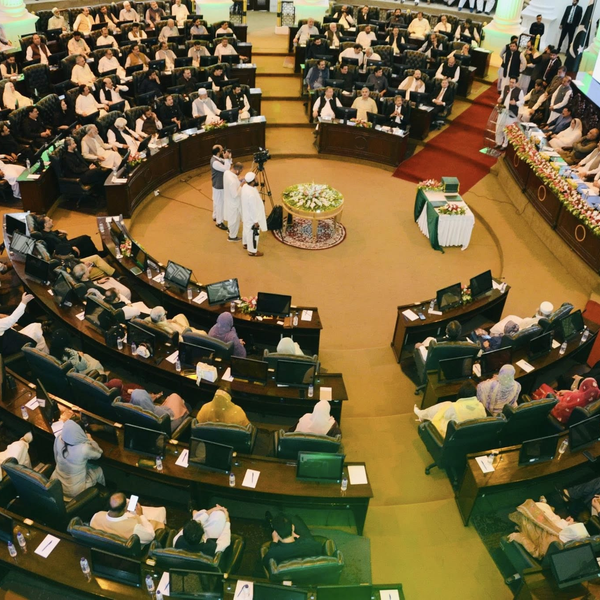Pakistan’s average monthly income rises to PKR 39,042, labor survey shows
Informal work still accounts for 72% of employment as agriculture’s share declines
Business Desk
The Business Desk tracks economic trends, market movements, and business developments, offering analysis of both local and global financial news.

Farmers cut grass to feed cattle in Pakistan's Jhang
Shutterstock
Pakistan’s latest labor survey, set for official release shortly, shows that the country’s average monthly income has reached PKR 39,042, with notable differences across gender and employment sectors, according to preliminary findings shared by Pakistan Bureau of Statistics officials with reporters.
The survey records men earning an average monthly income of PKR 39,302, while women earn PKR 37,347, highlighting a persistent gender gap in wages.
Employment distribution across sectors also shows a significant shift. Formal-sector employment stands at 27.9%, while the informal sector continues to dominate the economy with 72.1% of the workforce. Among informal workers, 73% are men and 66% are women, the report says.
One of the most prominent findings is a decline in employment in the agricultural sector. Compared with the previous survey, fewer Pakistanis are working in agriculture, with the sector’s employment share dropping to 33.1%. Still, more than 25.5 million people remain associated with agriculture.
Employment in industry and services, however, has grown. The survey reports that 25.7% of workers are now employed in industry, an increase attributed to gradual industrial recovery and expansion. More than 19.8 million people are employed in the industrial sector.
The services sector shows the strongest growth, with its share rising to 41.7%. Over 31.8 million Pakistanis now work in services, making it the largest employment provider.
Economists say the shift away from agriculture toward services and industry reflects broader structural changes in Pakistan’s economy.
“This pattern is typical of developing economies transitioning toward more urbanization and diversification,” said Karachi-based labor economist Farhan Majeed. “But the dominance of informal work remains a major concern, as it limits job security, social protection and long-term income stability.”
Analysts also warn that the persistent gender wage gap indicates ongoing challenges.
“Women remain underpaid and underrepresented in formal-sector jobs,” said policy researcher Sana Javed. “Without targeted interventions, the gender disparity in income and opportunities will continue.”










Comments
See what people are discussing